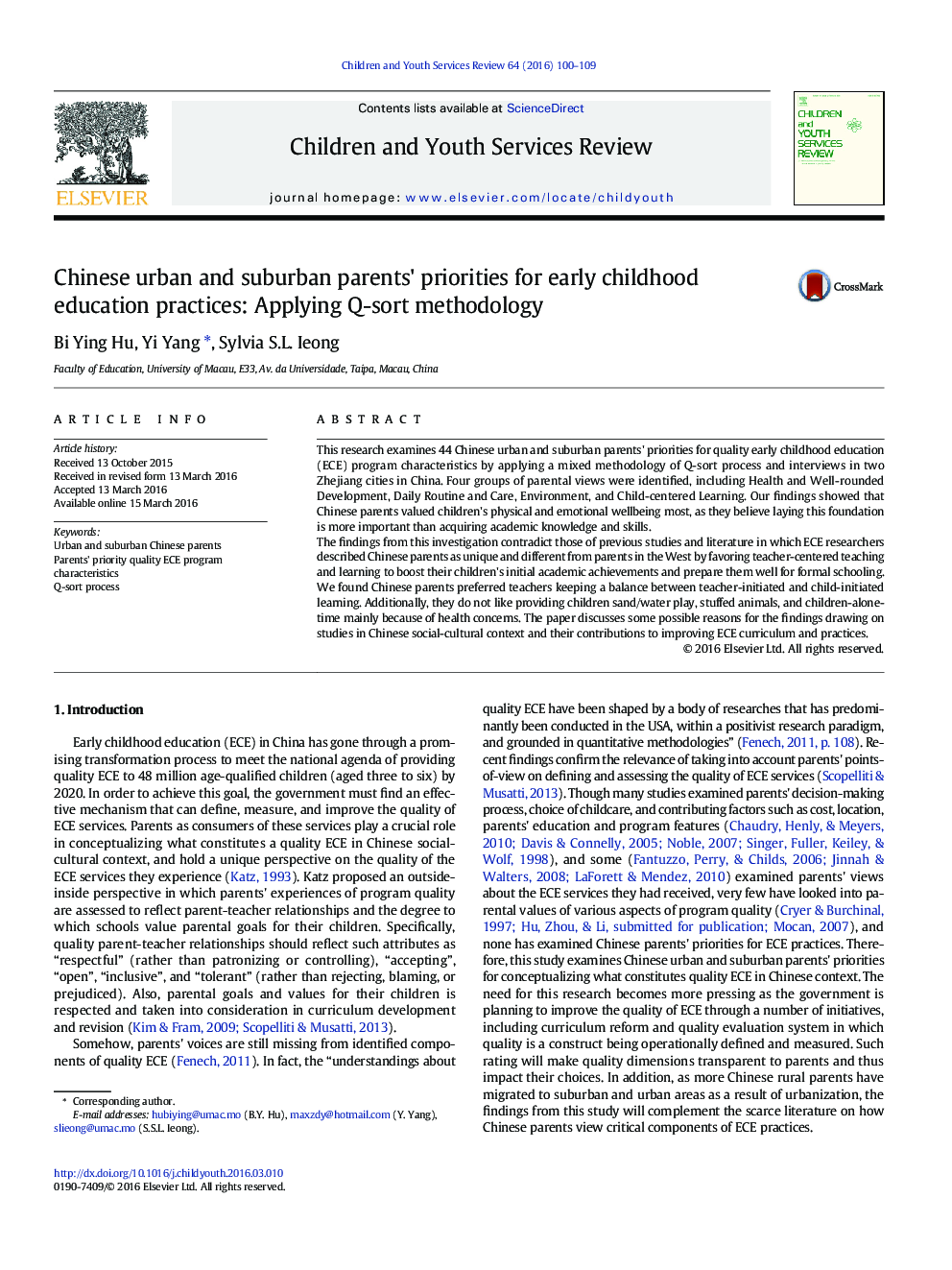| کد مقاله | کد نشریه | سال انتشار | مقاله انگلیسی | نسخه تمام متن |
|---|---|---|---|---|
| 345839 | 617769 | 2016 | 10 صفحه PDF | دانلود رایگان |
• Examined Chinese parents' priorities for programs using Q-sort methodology.
• Identified four groups of parental views.
• Parents valued children's physical-emotional wellbeing more than academic skills.
• Parents preferred a balance between teacher-initiated and child-initiated learning.
• Parents disapproved messy play and alone time because of health concerns.
This research examines 44 Chinese urban and suburban parents' priorities for quality early childhood education (ECE) program characteristics by applying a mixed methodology of Q-sort process and interviews in two Zhejiang cities in China. Four groups of parental views were identified, including Health and Well-rounded Development, Daily Routine and Care, Environment, and Child-centered Learning. Our findings showed that Chinese parents valued children's physical and emotional wellbeing most, as they believe laying this foundation is more important than acquiring academic knowledge and skills.The findings from this investigation contradict those of previous studies and literature in which ECE researchers described Chinese parents as unique and different from parents in the West by favoring teacher-centered teaching and learning to boost their children's initial academic achievements and prepare them well for formal schooling. We found Chinese parents preferred teachers keeping a balance between teacher-initiated and child-initiated learning. Additionally, they do not like providing children sand/water play, stuffed animals, and children-alone-time mainly because of health concerns. The paper discusses some possible reasons for the findings drawing on studies in Chinese social-cultural context and their contributions to improving ECE curriculum and practices.
Journal: Children and Youth Services Review - Volume 64, May 2016, Pages 100–109
